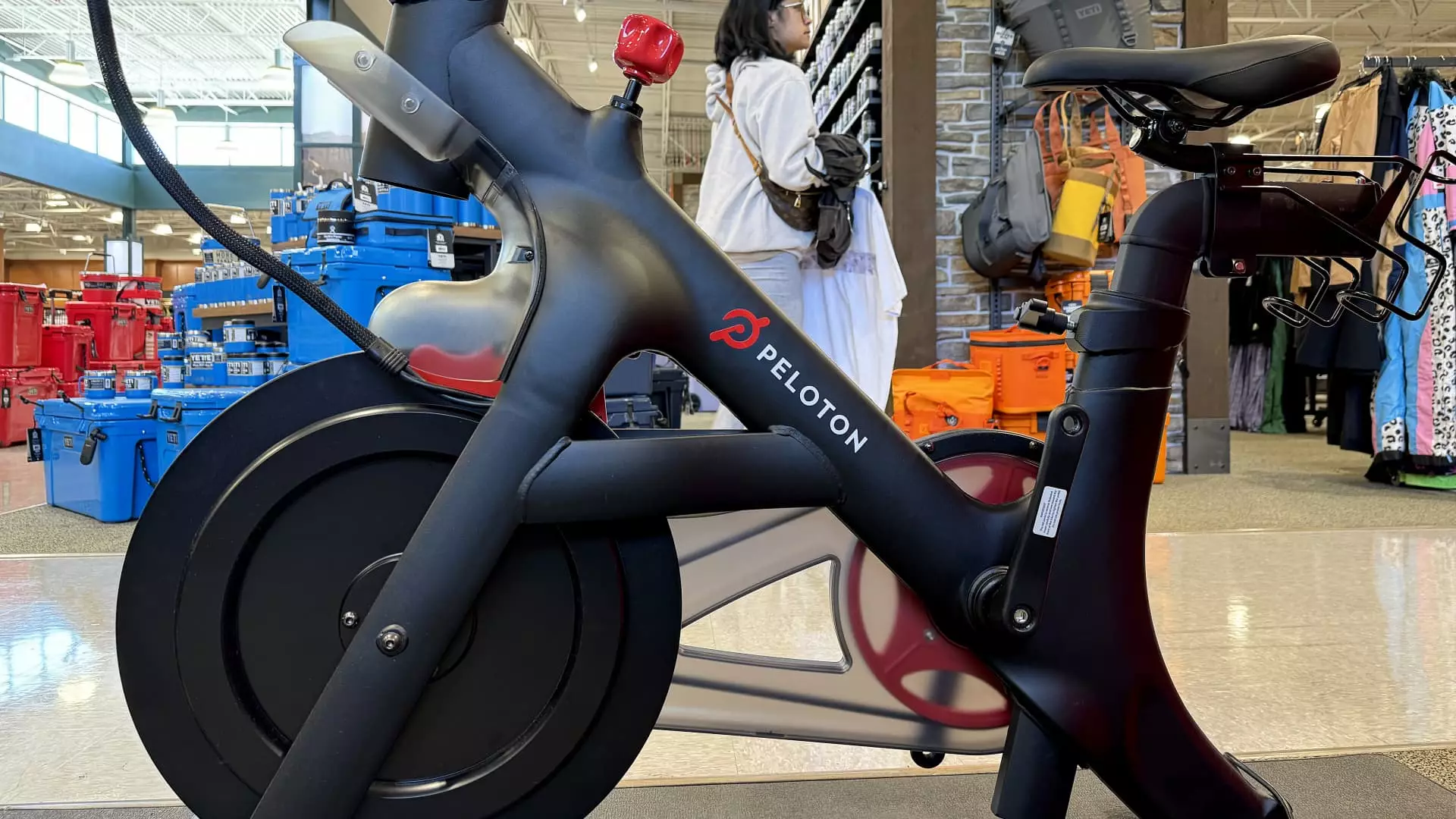In an audacious attempt to reclaim its faltering position in the fitness industry, Peloton has announced the launch of a new marketplace named Repowered, targeting the vast array of unused exercise equipment lying dormant in homes across America. This move could be seen as a desperate bid for relevance or an ingenious strategy to tap into the latent market of second-hand equipment. By allowing members to resell used Peloton gear using a generative AI pricing tool, the initiative certainly makes waves, but the broader implications raise critical questions about the company’s vision and ethics.
The very premise of Repowered suggests that Peloton recognizes the disillusionment of many past customers. The once-glorious narrative surrounding its high-end bikes and treadmills has faded, replaced by the unsettling image of these devices as glorified clothes racks. The allure of the fitness lifestyle promoted by Peloton has not translated to sustainable engagement for a vast number of its subscribers, prompting the question: Is this marketplace an actual service to the consumer or a calculated corporate maneuver to scrape profit from the graves of equipment that has been largely abandoned?
A Double-Edged Sword: Profit vs. Purpose
As consumers list their unused equipment, they will receive 70% of the sale price while Peloton collects the remaining share, in collaboration with Archive, the platform provider. This sharing structure, cloaked in the guise of innovation and communal benefit, sends mixed signals. On one hand, it offers sellers a chance to reclaim some funds and maybe even a redemption arc for their neglected purchases. On the other hand, it positions Peloton as a gatekeeper of what could otherwise be a thriving peer-to-peer economy, siphoning profits from every conceivable transaction.
The generative AI tool, which promises to recommend a price based on individual equipment history and market trends, is an interesting feature. However, it raises a critical question about the perception of value in a secondary market. Recommended pricing could undermine individual sellers’ choices, aligning them with corporate narratives rather than genuine market demand. In a landscape already rife with overvaluation, is Peloton risking ethical implications of exploiting user data to exert control over pricing strategies in the very segment where trust should reign?
Connecting to the Community: A Cunning Strategy?
Peloton’s Repowered also aims to foster a community-centric approach, ostensibly offering buyers reduced activation fees and visibility into the history of products. While these perks certainly add some appeal, they beg the question of whether this “community” is crafted more for retention of existing customers or for attracting new ones who may still be wary of investing in new equipment amid financial uncertainty.
It’s equally significant to mention that Peloton’s move comes not merely as a reaction to economic concerns from consumers fretting over rising costs, but also as a strategic response to the tidal wave of competition. Competitors including Trade My Stuff, which already operate in this resale space, are thriving amidst an increasing demand for used fitness equipment. By launching Repowered, Peloton hopes to solidify its role not just as a high-end fitness brand, but as a multi-faceted marketplace that competes on all fronts. This feels somewhat deceptive; rather than fostering a truly collaborative ecosystem for fitness enthusiasts, Peloton may be perpetuating a culture that prioritizes ownership of the consumer relationship above all else.
The Future of Fitness: What’s at Stake?
Peloton’s current predicament is emblematic of broader issues in the fitness industry, where the pursuit of subscription revenues frequently overshadows genuine engagement with users. The potential for Repowered to become a thriving platform hinges not just on financial viability but on whether it can cultivate authentic connections within its community. The past reliance on a fervent cult-like following may no longer suffice as consumer preferences evolve.
As we look toward the future of fitness and consumer engagement, the success of initiatives like Repowered might hinge on whether they prioritize customer autonomy over corporate gain. Will Peloton finally learn to balance profitability with purpose, or will it continue to operate with a corporate strategy that favors profits over the genuine voices and needs of its community? Only time will reveal if Repowered is a fresh start or merely a shadow of a once-illustrious brand’s descent.


Leave a Reply